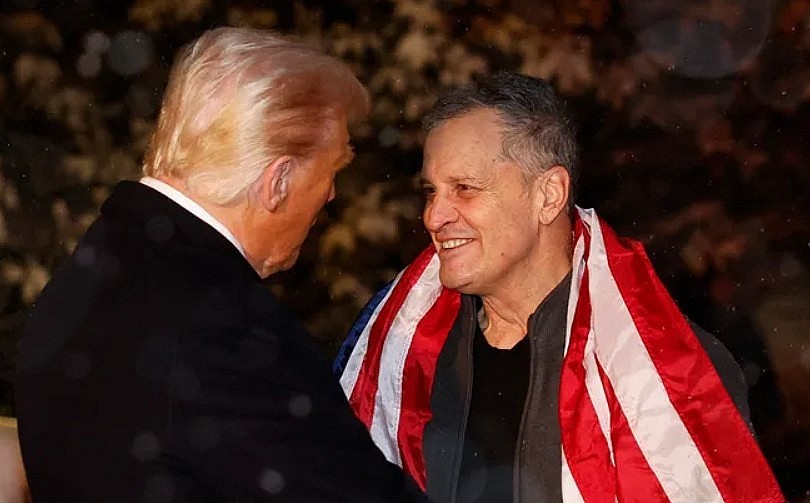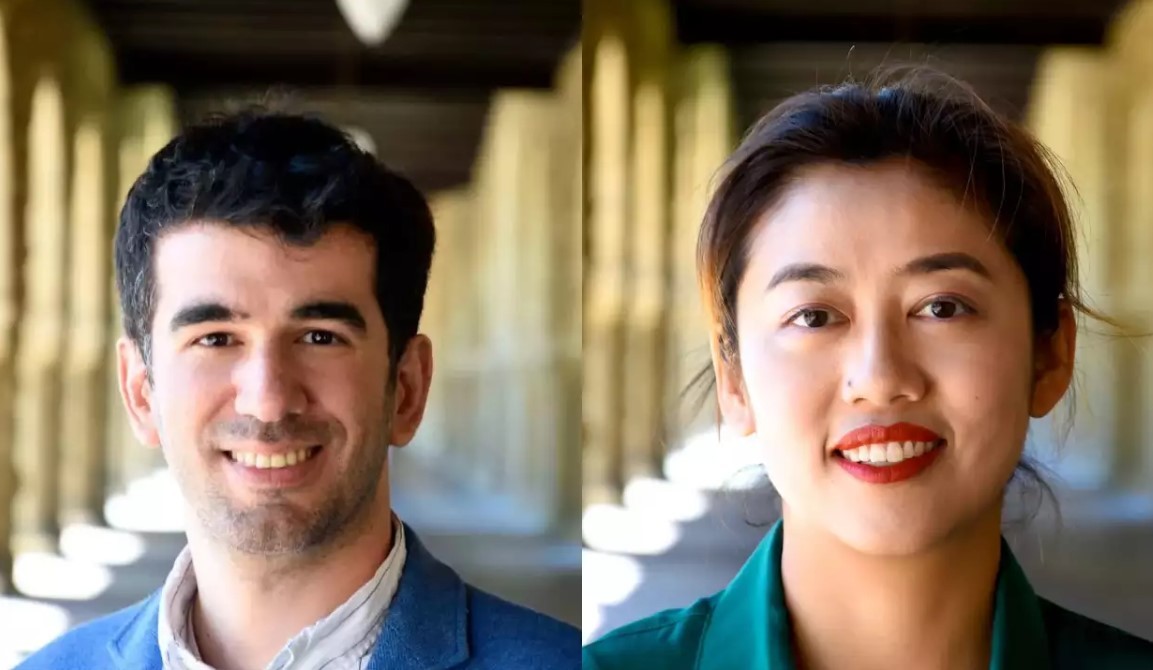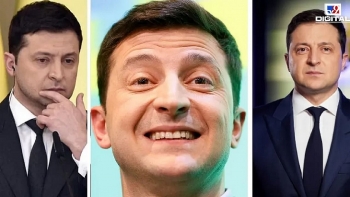Who is Marc Fogel? The American Teacher Who Survived Russian Imprisonment
 |
| US President Donald Trump greets former detainee Marc Fogel as he arrives at the White House in Washington, DC, on February 11, 2025 |
An Unexpected Twist in an Educator’s Journey
Marc Fogel was never a household name—until his arrest in Russia turned his life into an international legal battle. A passionate history teacher who had spent decades educating students across the world, Fogel suddenly found himself trapped in a foreign legal system, facing a punishment that seemed wildly disproportionate to his crime.
His story, full of resilience, diplomatic maneuvers, and the stark realities of international law, is one that captures both the fragility of individual freedom and the unpredictable nature of global politics. After years behind bars in a Russian penal colony, he is finally back on American soil—a moment of relief for his family, his supporters, and those who have followed his harrowing ordeal. But how did a dedicated teacher become embroiled in such a high-stakes international dispute?
Who Is Marc Fogel? A Life Dedicated to Education
Marc Hilliard Fogel was born on July 28, 1961, in Butler, Pennsylvania. He spent over 35 years teaching history and political science, shaping young minds across Colombia, Malaysia, Oman, Mexico, Venezuela, and Russia.
In 2012, he accepted a position at the Anglo-American School of Moscow, an elite international school serving expatriate families, including diplomats and business professionals. Fogel was well-respected for his engaging teaching style and deep understanding of history—particularly U.S.-Russia relations, which, ironically, would later play a pivotal role in his own life.
His career was one of dedication, curiosity, and a deep belief in the power of education to change lives. But in August 2021, everything changed.
The Arrest: A Teacher Caught in Russia’s Legal System
In the summer of 2021, Fogel returned to Russia after a trip to the U.S., where he had been prescribed medical marijuana for chronic pain caused by a serious spinal condition.
When he landed at Moscow’s Sheremetyevo Airport, Russian authorities searched his luggage and found 17 grams (0.6 ounces) of marijuana, which he had forgotten to declare. In the United States, this amount would have been considered minor—especially for someone with a medical prescription. However, Russia has some of the world’s strictest drug laws, and the authorities saw it differently.
He was swiftly arrested and charged with large-scale drug smuggling, a crime that carries severe penalties in Russia. Fogel maintained that he had no intention of breaking the law and had simply been using the marijuana for his medical condition. However, this argument carried little weight in court.
The Trial: A Harsh Sentence That Shocked Many
In June 2022, after nearly a year in detention, Fogel was found guilty of drug trafficking and sentenced to 14 years in a high-security penal colony.
To many observers, the punishment seemed excessively harsh. Comparisons were quickly drawn to the case of Brittney Griner, the WNBA star who was sentenced to nine years in prison in Russia for possessing a cannabis vape cartridge. The stark difference? Griner’s case was quickly thrust into the spotlight, leading to intense diplomatic negotiations that resulted in her early release through a prisoner swap in December 2022.
Fogel, on the other hand, remained largely forgotten, serving time in one of Russia’s brutal penal colonies—a system notorious for its harsh conditions, forced labor, and limited access to medical care.
His family, students, and former colleagues rallied behind him, urging the U.S. government to act. Many asked, “Why has Marc Fogel been left behind?”
Years in Captivity: Life in a Russian Penal Colony
For over three years, Fogel endured grueling conditions in a Russian penal colony. Inmates in these facilities are often forced to work long hours in harsh environments, with minimal medical care and poor living conditions.
His family feared for his health, especially given his spinal condition. Reports suggested that he was struggling, but unlike high-profile prisoners, Fogel’s case lacked the widespread media coverage needed to pressure the U.S. government into action.
Then, in December 2024, after persistent advocacy efforts, the U.S. State Department officially declared him “wrongfully detained”—a key step in mobilizing diplomatic resources to negotiate his release.
The Breakthrough: How Marc Fogel Was Finally Freed
On February 11, 2025, after years of negotiations, Marc Fogel was released from Russian custody and flown back to the United States.
His release was facilitated by Steve Witkoff, a special envoy appointed by former President Donald Trump, who had taken an active interest in securing the release of Americans detained abroad. While the exact details of the agreement remain undisclosed, analysts believe it was part of a broader diplomatic effort between the U.S. and Russia amid ongoing geopolitical tensions.
When he landed on U.S. soil, Fogel was visibly emotional. His first words:
“I feel like the luckiest man on Earth right now.”
He expressed deep gratitude to his family, his supporters, and the U.S. government for working tirelessly on his behalf.
The Bigger Picture: A Case That Raises Questions
Fogel’s case sheds light on several critical issues, including:
-
The Selective Nature of U.S. Government Efforts
– Why did Brittney Griner receive swift intervention while Fogel’s case took years to gain recognition?
– Should every American detained abroad receive equal attention, regardless of their fame or political significance? -
The Harsh Reality of Russia’s Legal System
– Russia has a zero-tolerance policy on drugs, even for medical use.
– Foreigners caught with cannabis, even in small amounts, face severe consequences. -
The Role of Diplomacy in Securing Releases
– The U.S. has engaged in prisoner swaps and diplomatic negotiations to free detained Americans, but the process remains unpredictable.
– Fogel’s release suggests behind-the-scenes deals can take time but are still possible.
Conclusion: A Long-Awaited Reunion
Marc Fogel’s return home marks the end of a painful and unjust chapter in his life, but his story is more than just a personal ordeal. It’s a stark reminder of how ordinary Americans can become pawns in international disputes, sometimes with devastating consequences.
His resilience, the advocacy of his loved ones, and diplomatic negotiations ultimately secured his freedom. As he begins his new chapter back in the U.S., the question remains: How can future cases like his be prevented, and what can be done to protect American citizens abroad?
For now, though, one thing is certain—after nearly four years in Russian captivity, Marc Fogel is finally home.























